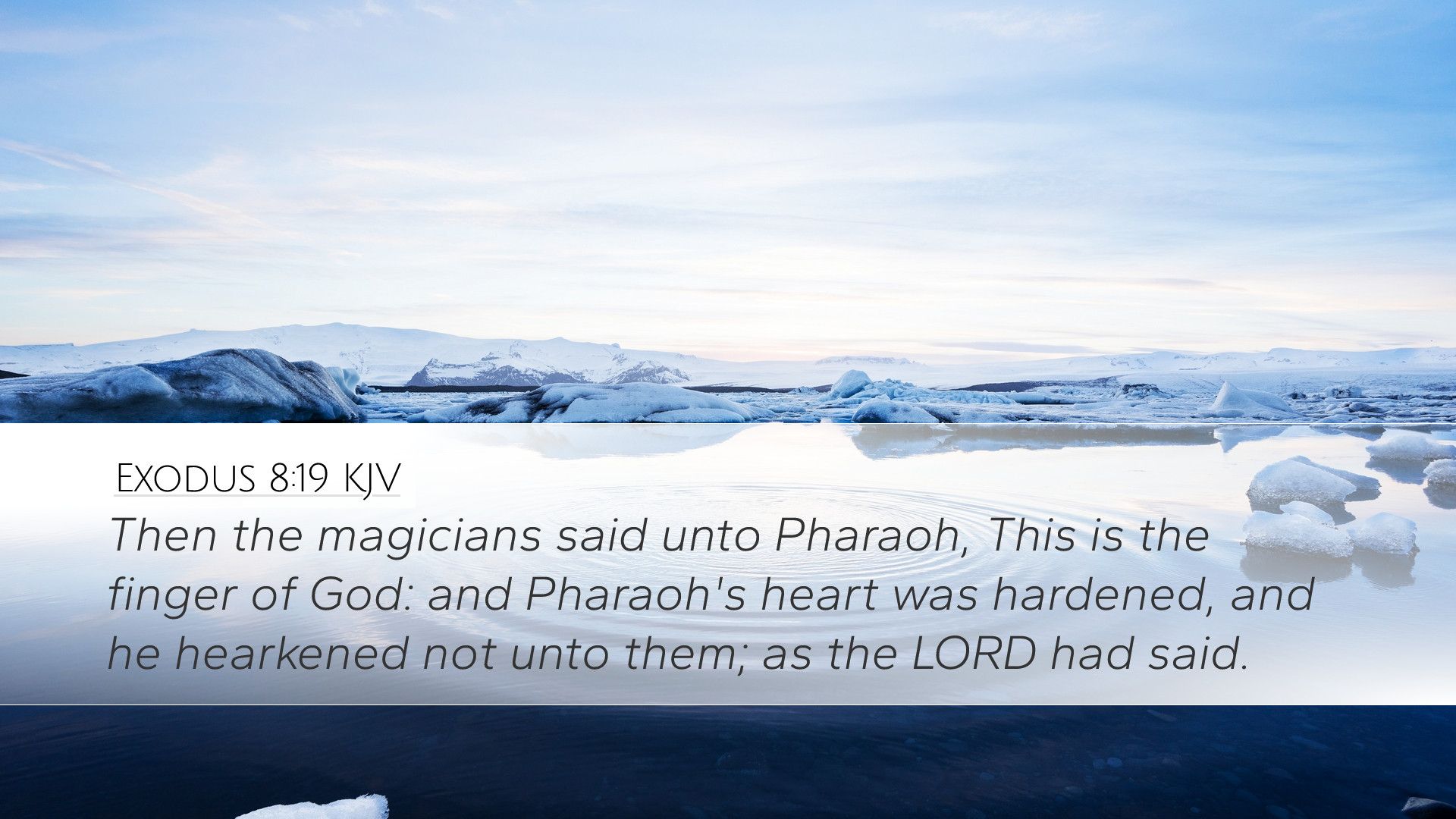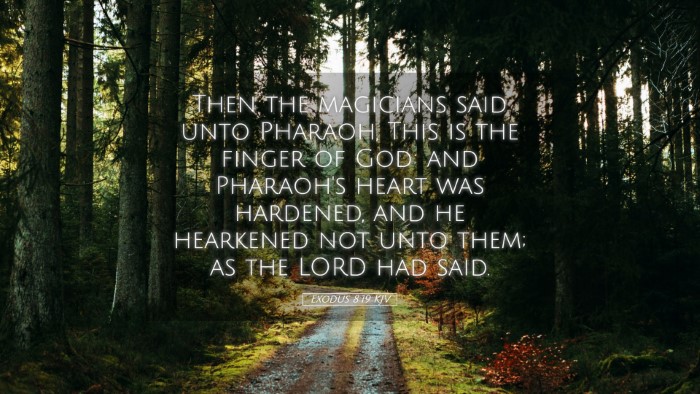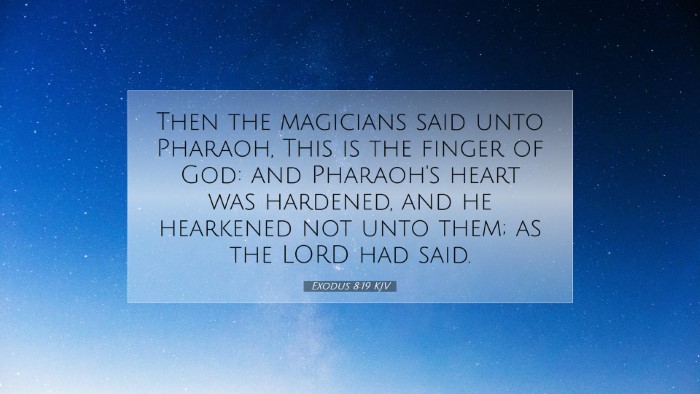Exodus 8:19 - Commentary Summary
Verse Context: Exodus 8:19 states, "Then the magicians said to Pharaoh, 'This is the finger of God.' But Pharaoh's heart was hardened, and he did not heed them, just as the Lord had said."
Introduction
This verse is pivotal in the narrative of the plagues in Egypt, marking a significant moment where the magicians acknowledge the divine power behind the plagues. In this commentary, insights from Matthew Henry, Albert Barnes, and Adam Clarke will elucidate the theological and practical implications of this verse for pastors, students, and theologians.
Historical Context
The Book of Exodus depicts God’s call for His people to be liberated from bondage in Egypt. The plagues serve not merely as punishment for Pharaoh’s hard heart but also as signs demonstrating God’s supremacy over Egyptian deities. This particular verse highlights a turning point where even the magicians, representatives of Pharaoh’s power, recognize the limitations of their own abilities in the face of divine intervention.
Analysis of the Verse
"This is the finger of God"
Henry remarks that the acknowledgment of the magicians represents a humble admission of God's overwhelming power. Despite their earlier attempts to replicate the wonders, they find themselves utterly outmatched. This phrase suggests the divine nature of the plagues, emphasizing God’s direct involvement in human affairs.
Implications of the Magician’s Recognition:
- Power of God: This recognition showcases God's omnipotence, as even the trained men of science and magics concede defeat.
- Human Limitations: It highlights the limitations of human abilities when faced with the supernatural.
- Divine Foreknowledge: As Henry notes, this moment aligns with God’s previously expressed intentions; Pharaoh's heart was hardened in fulfillment of God's plan.
The Hardening of Pharaoh’s Heart
Following the magicians' declaration, the text states that Pharaoh's heart was hardened. Barnes emphasizes that this hardening was not merely a passive inferiority but an active defiance against God’s authority. Barnes further illustrates that Pharaoh's refusal to listen is a metaphor for the human tendency to resist divine revelation even in the face of undeniable evidence.
Theological Reflections on Hardening:
- Divine Sovereignty: The hardening signifies God's sovereign will and the mysterious nature of free will. This complex interplay allows for an exploration of how divine purpose is fulfilled through human obstinacy.
- Call to Repentance: Pharaoh’s refusal serves as a warning to anyone who chooses pride over humility before God’s will.
- Consequences of Rebellion: The persistent hardening of the heart correlates with significant consequences for Pharaoh and Egypt as a whole.
Practical Applications
The implications of Exodus 8:19 resonate deeply in contemporary Christian life and ministry. Here, Clarke emphasizes the importance of acknowledging God's hand in every circumstance, especially when confronting challenges that seem insurmountable.
Ministry Lessons:
- Recognition of God’s Work: Pastors and church leaders should encourage their congregations to recognize the movements of God in their lives and the world.
- Humility in Leadership: Leaders should cultivate humility, understanding that human wisdom can often fall short of divine revelation.
- Open Hearts to God's Will: Believers are encouraged to remain open to the ways God may be calling them to respond in their life situations.
Conclusion
Exodus 8:19 serves as a powerful reminder of God’s authority and the human heart’s tendency to resist divine truth. Through the insights of Matthew Henry, Albert Barnes, and Adam Clarke, we learn that the acknowledgment of God’s power, the mystery of His sovereignty, and the practical applications for believers today remain relevant to our walk with God. It challenges us to examine our own hearts and the ways we respond to God’s undeniable presence in our lives.


